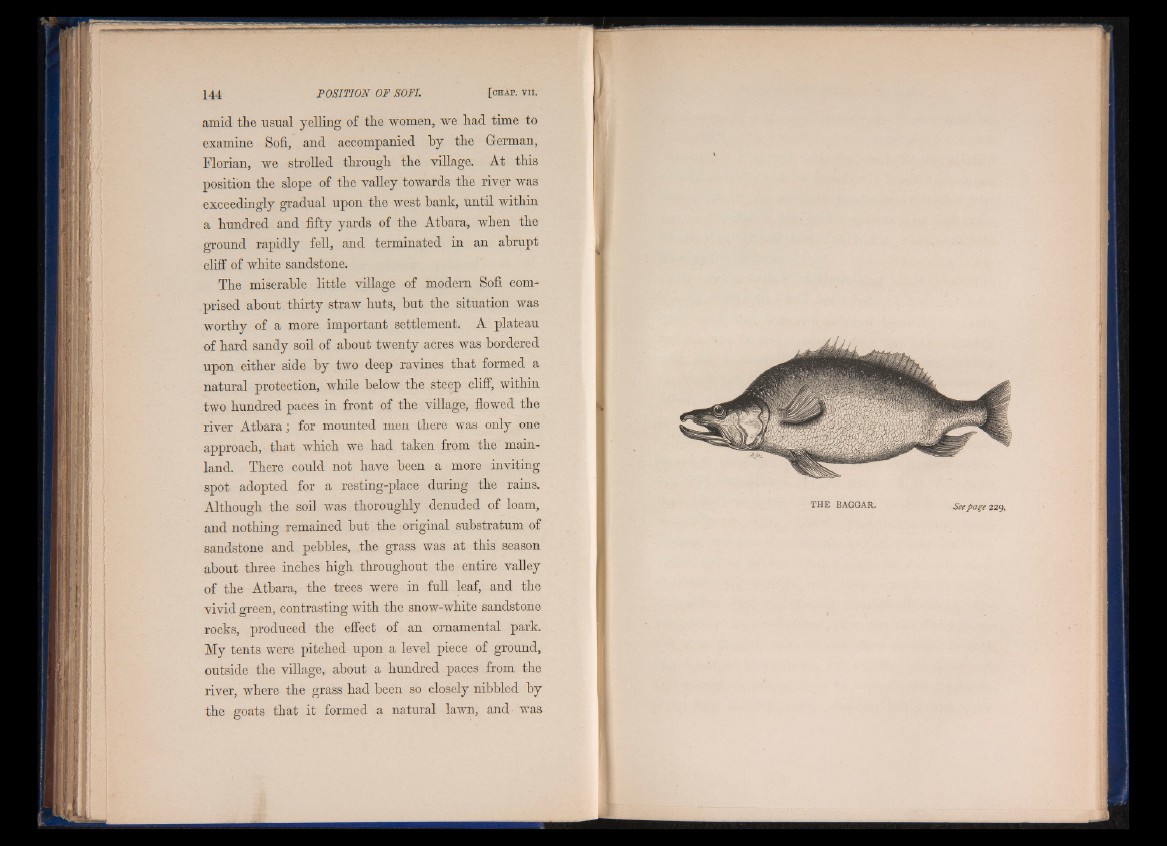
amid the usual yelling of the women, we had time to
examine Soli, and accompanied by the German,
Florian, we strolled through the village. At this
position the slope of the valley towards the river was
exceedingly gradual upon the west bank, until within
a hundred and fifty yards of the Atbara, when the
ground rapidly fell, and terminated in an abrupt
cliff of white sandstone.
The miserable little village of modem Sofi comprised
about thirty straw huts, but the situation was
worthy of a more important settlement. A plateau
of hard sandy soil of about twenty acres was bordered
upon either side by two deep ravines that formed a
natural protection, while below the steep cliff, within
two hundred paces in front of the village, flowed the
river Atbara; for mounted men there was only one
approach, that which we had taken from the mainland.
There could not have been a more inviting
spot adopted for a resting-place during the rains.
Although the soil was thoroughly denuded of loam,
and nothing remained but the original substratum of
sandstone and pebbles, the grass was at this season
about three inches high throughout the entire valley
of the Atbara, the trees were in full leaf, and the
vivid green, contrasting with the snow-white sandstone
rocks, produced the effect of an ornamental park.
My tents were pitched upon a level piece of ground,
outside the village, about a hundred paces from the
river, where the grass had been so closely nibbled by
the goats that it formed a natural lawn, and was